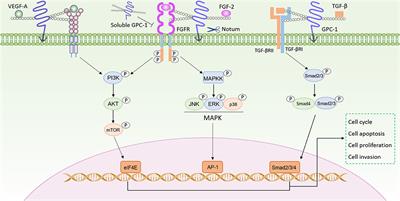EDITORIAL
Published on 21 Feb 2020
Editorial: Heparan Sulfate Proteoglycans and Their Endogenous Modifying Enzymes: Cancer Players, Biomarkers and Therapeutic Targets
doi 10.3389/fonc.2020.00195
- 2,212 views
- 6 citations
29k
Total downloads
111k
Total views and downloads
You will be redirected to our submission process.
EDITORIAL
Published on 21 Feb 2020
ORIGINAL RESEARCH
Published on 22 Jan 2020

REVIEW
Published on 17 Jan 2020

ORIGINAL RESEARCH
Published on 10 Dec 2019

REVIEW
Published on 28 Nov 2019

ORIGINAL RESEARCH
Published on 18 Sep 2019

MINI REVIEW
Published on 02 Aug 2019

MINI REVIEW
Published on 12 Jul 2019

MINI REVIEW
Published on 12 Jun 2019

MINI REVIEW
Published on 29 Apr 2019

REVIEW
Published on 10 Apr 2019

ORIGINAL RESEARCH
Published on 02 Apr 2019

